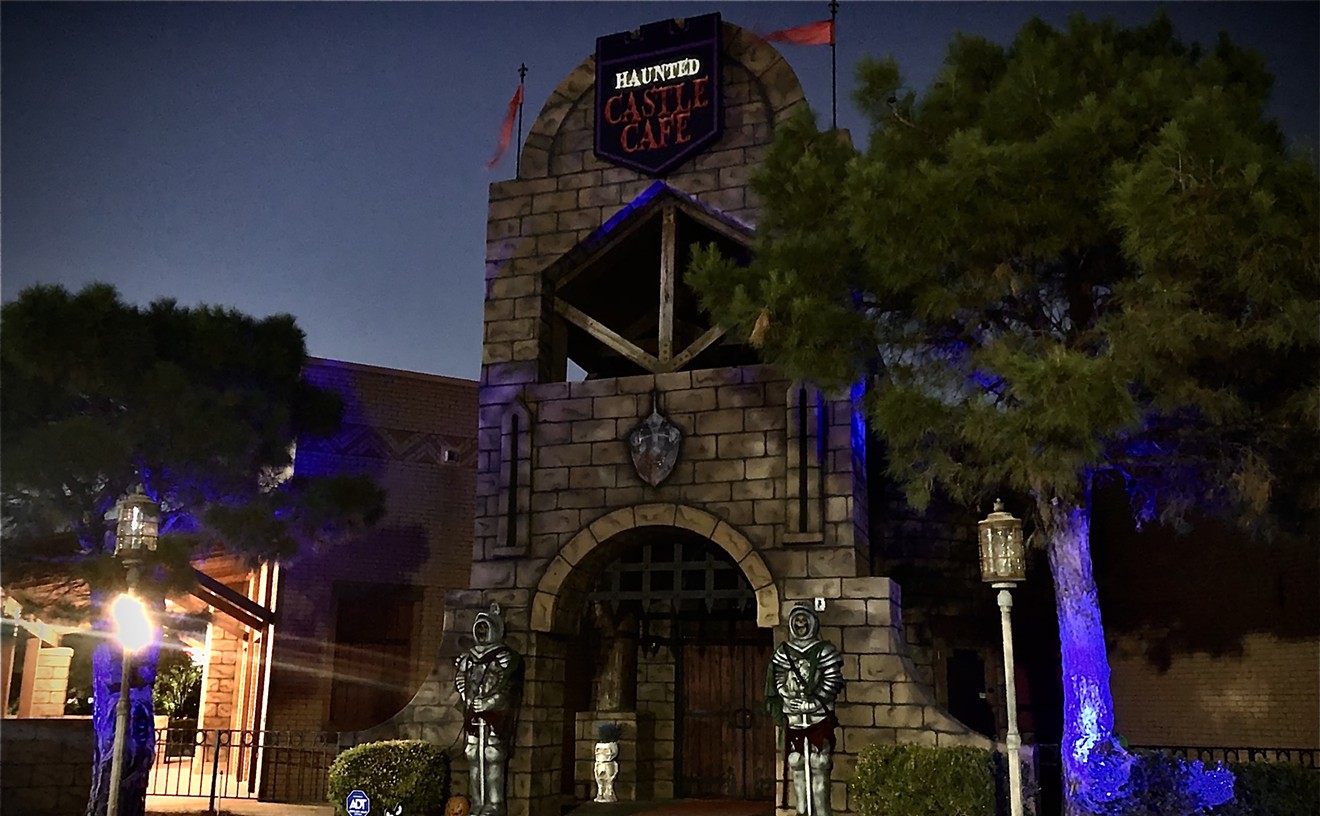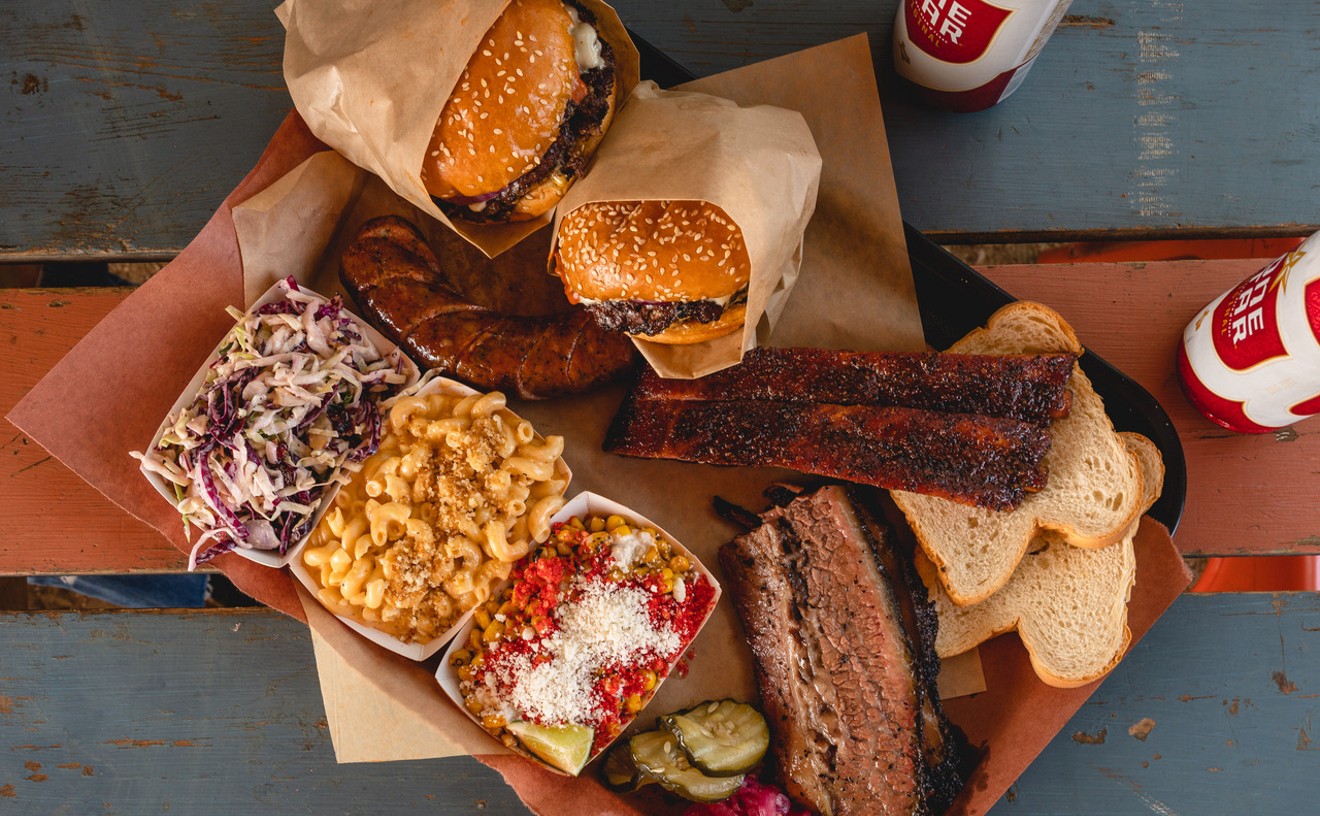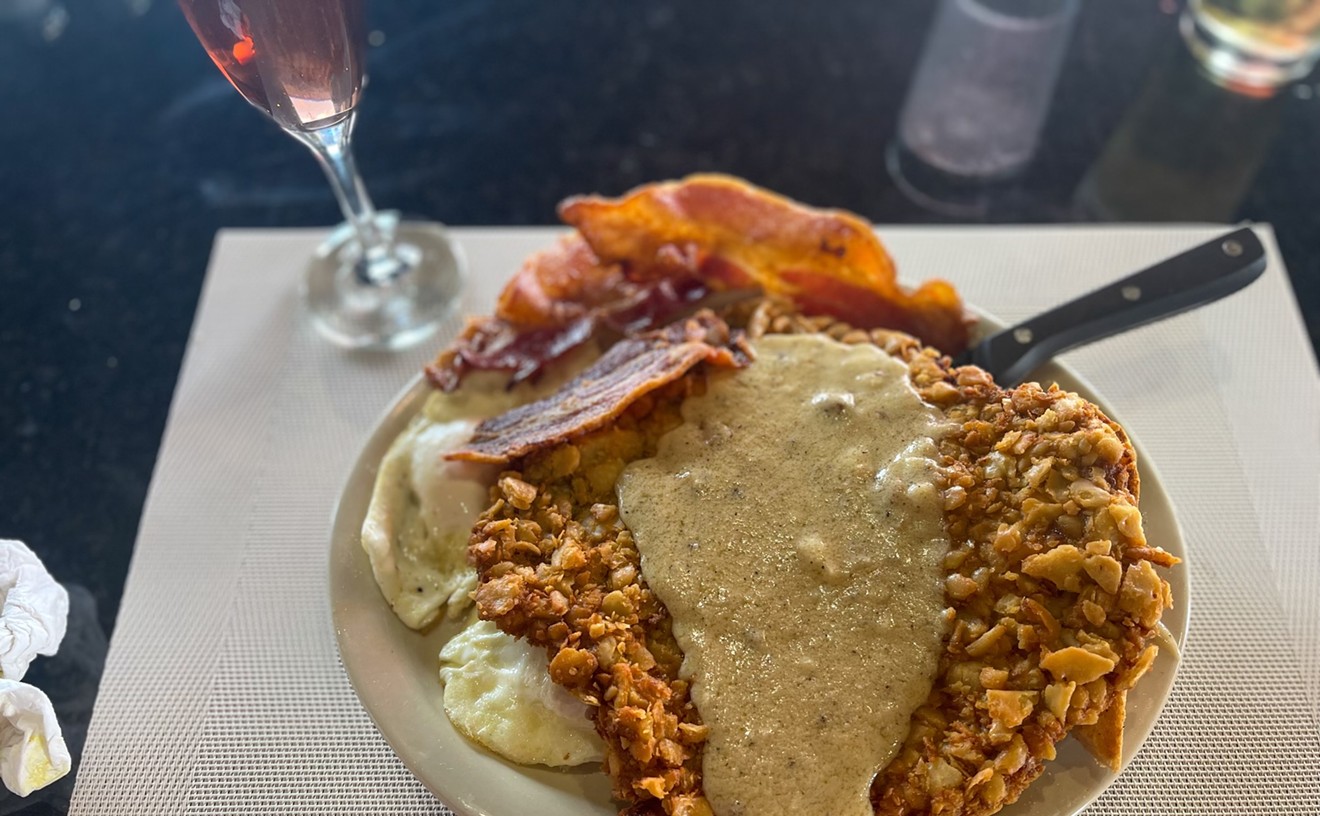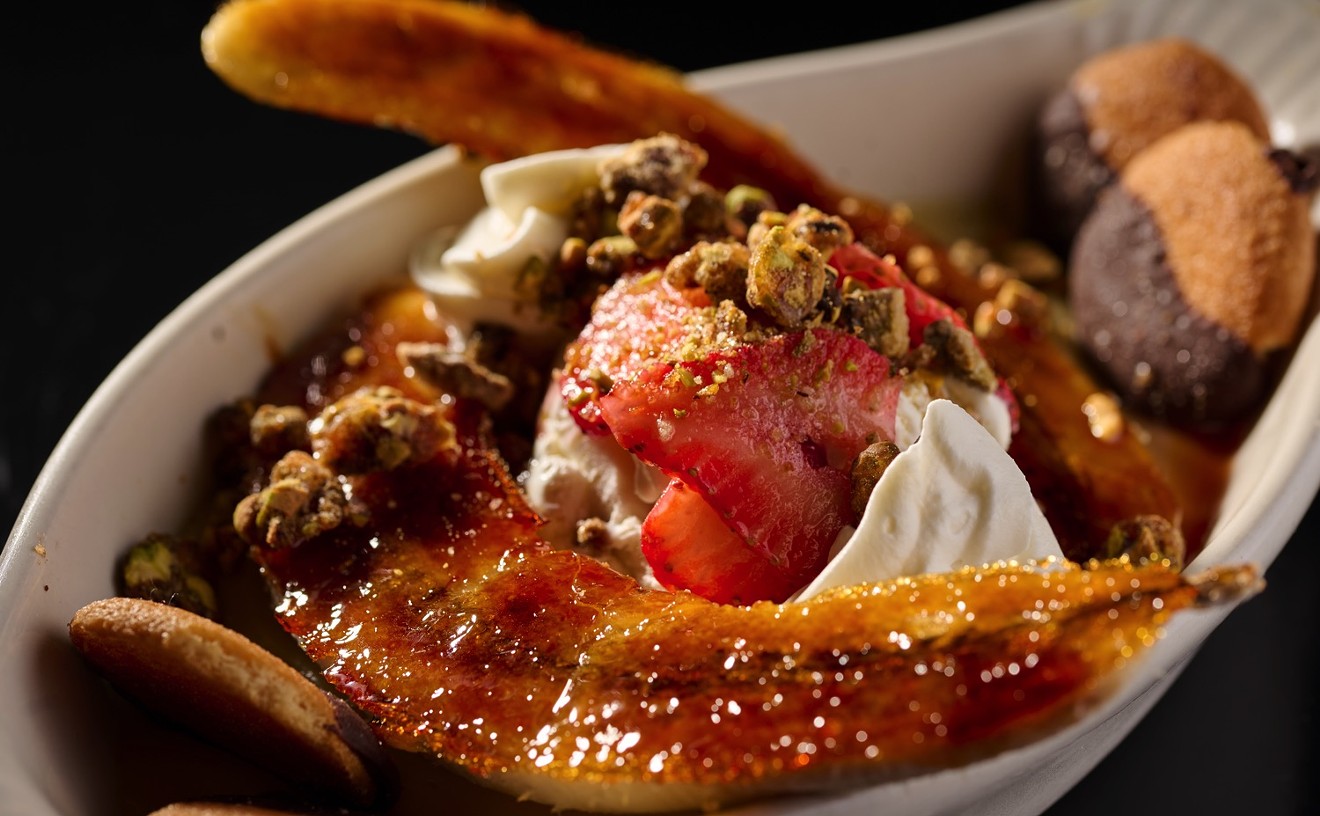Hernandez originally posted a picture of the Corn Connection cart and employees, and she captioned it, “Please don’t support this Columbusing ass company, the Corn Connection, in Dallas. YT ppl [white people] selling elotes – SMMFH.”
Aside from borrowing its logo, interlocking Cs from Chanel, the business also borrowed its product, elotes: a Mexican dish of corn, mayonnaise, hot sauce and cheese that's found its way onto an increasing number of American menus in recent years. Hernandez says the company also posted numerous remarks and images that were disparaging of blacks, Latinos and food carts.
“I saw them in Deep Ellum and was skeptical because there was a white dude working behind the cart and they were charging more than a regular elotero," Hernandez says. "Then I saw Do214 was raving about their elotes. Why's it take this white-washed, hipsterized version of what eloteros have always been doing to get this sort of media attention? I looked at their Instagram and saw that that was problematic and that's when I posted it on Facebook.”
Hernandez’s extensive network then set its sights on Corn Connection, sifting through the company’s social media accounts. There was an Instagram post from July 29 that people found particularly egregious because it insulted other food cart vendors, which are historically Latino businesses. It read, “Elotes with swag. Buy them from the G’s who let the candy drip, Or I guess you could buy them from some roachin’ ass cart in front of Home Depot.”
“That’s when people flipped, and started flooding their Facebook page with negative reviews and their Instagram had been put on private,” Hernandez says.
The owner of Corn Connection, Miles, who asked us not to use his full name in this story, said it was a former employee — a Latino — who posted that on Instagram, that all employees had access to the Instagram account and that he didn’t monitor their posts. He said the employee was let go for other reasons several months ago.
“It's those kind of ideas that lets them get away with selling their elotes for more than double the cost,” counters Hernandez. “They’re profiting off of a marginalized culture and not being respectful of the culture that they were borrowing from. The owner's girlfriend considers herself Hispanic but there still needs to be a level of respect for the Latino, typically immigrants, who work behind those carts.”
“I hate that people are offended,” Miles says. “I've never been racist. I don't put up with anything like that. I don't even put up with people being rude to people.”
Several other memes from their Instagram were screenshot before the account was taken down, including Project Pat, a black rapper with a caption in ebonics, and a Latino from behind a glass wall in jail.
“I went on their Instagram and saw that they were using negative stereotypes of men of color, specifically,” says Everardo Amaya, another community organizer, who started sharing the company’s posts. Miles defends the Instagram posts.
“I mean, would you put a picture of Hitler on there because you're white?” Miles says. “America is a melting pot, of all kinds of cultures share all kinds of things, we all share here. It's all love. It was taken and made negative by other people. Why would anyone use negative things to advertise their company?”
Amaya can overlook the cultural appropriation, but not the insults. He says he took most offense to the “roachin’ ass cart” comment.
“Cultural appropriation is one thing ... it happens if there’s a market for it, people will support it ... but they’re putting down people who are working really hard to provide for their family," he says.
Corn Connection’s owner doesn’t believe what he’s doing is cultural appropriation.
“I don't even know what that is, to be honest with you," Miles says. "I just know I grew up eating that food and buying food from those vendors and those carts and loving it,” he says. “So I bought a cart from one of them and had it painted and started selling them myself because I wanted to share what I love so much with other people. It was me and one of my best friends, a Mexican guy, who built the cart together. ... She feels like we're racist for selling Mexican food and being white, which I don't really understand.”
During the fallout, a former worker for Corn Connection, Ashleigh Steinwender, who goes by the name “whitetrashleigh” on Twitter, threw gasoline on the flames by sending Hernandez a message on Instagram: “You are a terrible piece of shit and I hope you choke on an elote and die.”“It's those kind of ideas that lets them get away with selling their elotes for more than double the cost. They’re profiting off of a marginalized culture and not being respectful of the culture that they were borrowing from."
tweet this
Corn Connection’s owner insists Steinwender was not acting on the company’s behalf when sending that message. “I don’t have any responsibility over her, she’s not my employee," he says. "She’s worked the cart two times.”
Lindsay Olivares, Miles' girlfriend, sent Hernandez a long and winding apology by text, which has been edited for brevity.
“I do not perpetuate hate with hate," she writes. "I want to personally say, I think it is very uncool what you did, and while I can appreciate the fight for something you believe in, this fight seems a little confusing ... In regards to the 'roachin' comment heard across the world, that was absolutely taken and twisted to mean something it didn’t. That was made in jest and in no way directed at any ethnicity ... Gentrification is something that will never end, so embracing the change is far less stressful ... We sincerely wish you the best of luck in all of your endeavors and if you’re ever in Dallas we, Miles and I, invite you to come by and try a cup, on the house.”
Corn Connection also issued a public apology on its Facebook page, which has since been deactivated:
"A comment was made in bad taste and apparently was taken out of context. It was truly said in jest and without any negative intention. It was a thoughtless comment that caused unintended harm. We understand how and why it was viewed as offensive, that being said we sincerely apologize to each and every person that took offense, as it was and is never our intention to upset anyone or hurt anyone's feelings. That is not who we are and that is not our style. We are just a small business and we wouldn't even exist if it weren't for the inspiration from all of the food carts that we have frequented for years and continue to buy from and support. We want to support all small business and food vendors alike."
Corn Connection and its owners have since taken down all of their social media accounts, but they plan to keep running the business, which Miles says is only a part-time hobby.
“Why wouldn’t I? I don’t have anything to be ashamed of," he says. "I’ve done nothing wrong. I didn't post anything and would never say anything harmful to someone. A former employee said something that was in terribly bad taste – the guy who said it was Mexican. I don't understand how it could have been racist if he is Mexican. He was just saying my cart is better than your cart.”











